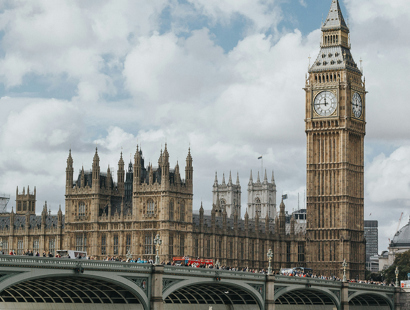
Autumn Budget—as frightening as feared?
Yesterday, Chancellor Rachel Reeves delivered the first Labour budget in 14 years. Private client partner James Cook analyses the key details and what they may mean for those in the private wealth sector.
£40 billion in tax hikes
The budget announcements included some pretty bruising tax hikes, with the Chancellor’s intention to increase tax receipts by £40 billion, an astonishing goal on the face of it and one which was unsurprisingly met with gasps inside (and outside) the House of Commons.
As anticipated, the Chancellor honoured the government’s promise not to increase taxes on working people in relation to NI, VAT and Income tax, but at the expense of employers who saw their NI contributions increase from 13.8% to 15% on workers’ earning of £5,000 (a reduction of £4,100 in the threshold) - albeit that the message was softened slightly by the extension of the amount that employers can claim back from their NI bill from £5,000 to £10,600.
Six years since it took hold as a revenue raising strategy, fiscal drag is set to end from 2028/29 when income tax and NI thresholds will rise in line with inflation. This announcement will no doubt be welcomed by many but it is one that will be treated with scepticism given the potential timing of the next General Election.
Prior to the Budget, the Chancellor openly expressed that Capital Gains Tax (CGT), Inheritance Tax (IT) and Stamp Duty Land Tax (SDLT) would be subject to reform and something for those with the ‘broadest shoulders’ to bear the brunt of.
The fairly modest CGT rate increases announced today will come as a relief to many who had been fearing much more stringent tax rises. However, with no phased transition to give those planning transactions wiggle room, the changes will begin to bite immediately. For context, CGT will rise from 10% to 18%, and the higher rate from 20% to 24%. The rates on residential property will remain at 18% and 24%.
From April 2026, carried interest in respect of Fund Management will be taxed fully within the Income tax framework with the respite that capital gains tax rates currently applied to carried interest will be increased to 32% from April 2025. Although expected, this will be an unwelcome announcement for those in the private equity world.
Business asset disposal relief will remain at £1 million and the applicable rates of capital gains tax will increase to 14% in April 2025 and 18% in April 2026 - effectively bringing the relief in line with the lower rate of capital gains tax.
IHT was one of the areas of notable reform effectively extending the reach of the regime. The inheritance tax threshold freeze is to be extended by two years to 2030 and from April 2027 private pensions will fall within the scope of inheritance tax. Relief on agricultural property and business property is to be capped at 100% on the first £1 million and 50% on the remainder from April 2026. Business property relief on unlisted shares on the markets of a recognised stock exchange (e.g. the AIM) to be reduce to 50%.
The higher rate for additional dwellings for SDLT is set to increase on 31 October 2024 from 3% to 5%. Such a hike will affect those purchasing second homes, buy-to-let properties and companies buying residential property.
Abolition of non-dom regime
Whilst other announcements, such as the introduction of VAT on private school fees from January 2025 and the removal of their business rates from April 2025 were as expected, there had been rife speculation that the government was reconsidering the planned abolition of the non-dom regime. That said, the Chancellor has chosen to plough on with non-dom reform – with the regime set to be replaced with a new residency-based system from April 2025.
The widely held view in the industry is that the net benefit of abolishing the non-dom regime will be negligible, so this is perhaps more of a politically driven move - but one with potentially far-reaching implications for the UK economy if a significant proportion of those with overseas wealth choose to take their spending and investing elsewhere.
The rumour mill had been working overtime in the build up to the Budget and, inevitably, some of the more drastic fears were not realised. That said, this budget was not a favourable one for middle and higher-income earning individuals, albeit fairly neutral (with the exception of inheritance tax) for businesses across the board.
The Chancellor’s time at the despatch box mirrored the Prime Minister’s sentiments that those with the broadest shoulders should bear the largest burden – but we now have some clarity over what this government deems ‘broad shoulders’ to mean.
James Cook is a partner in the private client team. He advises on estate and succession planning, wills, probate, trusts, tax-planning, lasting powers of attorney, enduring powers of attorney and Court of Protection matters.
Get in touch
If you would like to speak with a member of the team you can contact our private client solicitors; Holborn office +44 (0)20 3826 7522; Kingston office +44 (0)20 3826 7529 or Putney office +44 (0)20 3826 7515 or complete our form.





